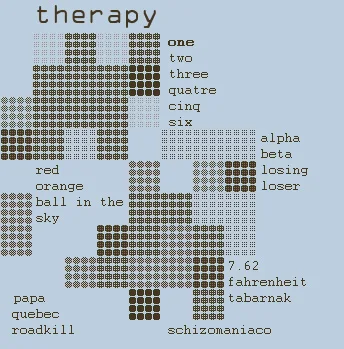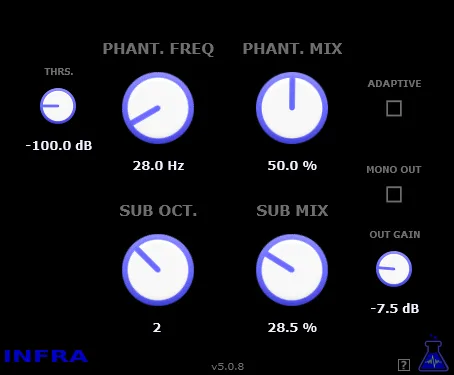therapy: Audio Therapy From de la Mancha for Your Sound
In a world where every plugin parameter is meticulously refined, where every slider has a predictable effect, it appears – therapy. It’s not just a VST effect; it’s an invitation to experiment with your audio, psyche, and the limits of understanding how musical instruments work. Created by the masters of unpredictability from de la Mancha, therapy challenges the traditional approach to sound processing, replacing the usual knobs and faders with… words. Yes, you read that right.
Forget about complex equalizer settings, subtle compression, or precise delays. therapy offers you a different path – the path of free association and uncontrolled expression. Your task is to enter words, phrases, random sets of letters, or streams of consciousness, and the plugin will transform this text information into complex sound algorithms. The result? Complete stereophonic audio-psychosis. Your sound will be transformed in accordance with your deepest, sometimes, possibly irrational thoughts, pouring onto a virtual text panel.
This is a tool for those who are tired of predictability, who are looking for new, unexplored ways for sound design or simply want to pour out their emotions in the form of audio chaos. therapy doesn’t try to “fix” your sound or make it “better” in the classic sense. It listens to your words and reflects them in sound, creating unique, often strange and captivating textures. It’s like a psychotherapy session for your audio file, where the couch is your DAW, and the conversation is text input.
How does therapy work?
The basic idea is to convert text into parameters for sound processing. The exact mechanism of this transformation is a secret even for the author. This makes therapy completely unpredictable. You enter the word “joy” and get one sound, enter “sadness” – another, and if you enter a random set of characters – the result will be the third. There is no mapping between the word and the sound, no logic that can be learned. There is only experiment and surprise.
The plugin uses a 3-band granular effect as the basis for its processing. Granulation is a technique that breaks down sound into tiny “grains” and manipulates them, creating unique, often grainy, blurred, or futuristic textures. In the case of therapy, these manipulations are controlled by the words you enter. You cannot directly control the grain size, its speed, or its location in the stereo field – all of this is decided by the internal, “psycho-somatic algorithm” of the plugin, which responds to your text.
Key features of therapy:
- Innovative control: Completely replaces traditional knobs and sliders with text input. Your voice (through the keyboard) becomes your controller.
- 3-band granulator: The heart of the processing is a powerful granulator, divided into three frequency bands for more complex sound transformations.
- Lack of direct control: It is impossible to intentionally control any effect parameter. This is a plugin for intuitive exploration, not for precise tuning.
- Unpredictable results: Each entered word can give a unique, often amazing sound result. This makes each session with therapy unique.
- Stereo Audio-Psychosis: The processing result is presented in full stereo, immersing you in the world of sound hallucinations and strange textures.
- Philosophical subtext: The plugin raises questions about the connection between thoughts, emotions, and their auditory expression, like a true therapist who “looks back without offering solutions.”
It’s important to remember that therapy is an artistic and experimental tool. It will not replace a professional psychologist and is unlikely to become your primary tool for mixing or mastering. But it can become a source of inspiration, a way to break out of the ordinary and explore new, unpredictable soundscapes. This is an invitation to play, to experiment with sound through words. Try to express your “burning, murderous rage” or “neurotic wanderings” and hear how they sound in audio-psychosis format. What was your relationship with your mother like? Maybe therapy will help you find an auditory answer.
The plugin is available in VST format for the Windows operating system (Win32). The author is de la Mancha.



